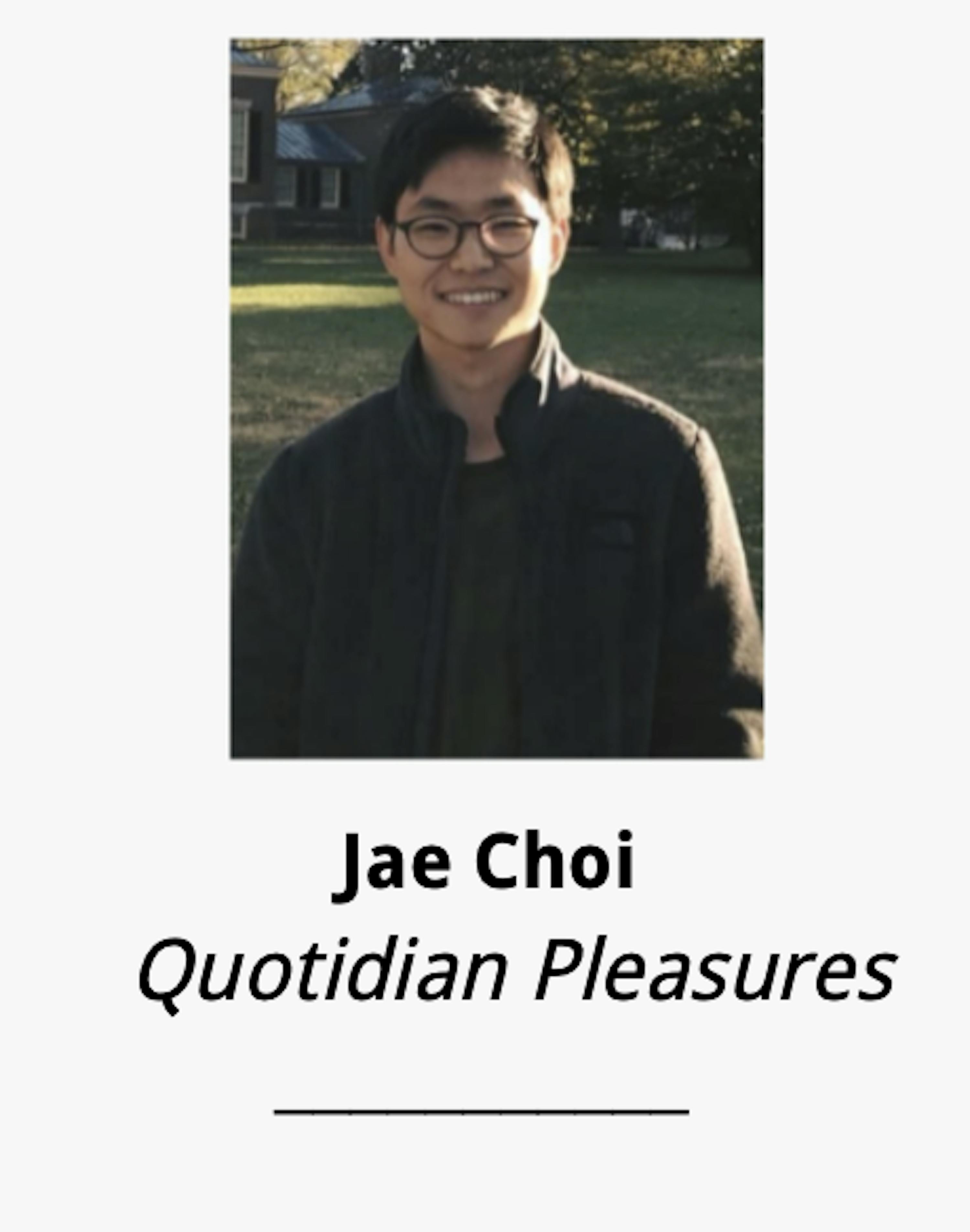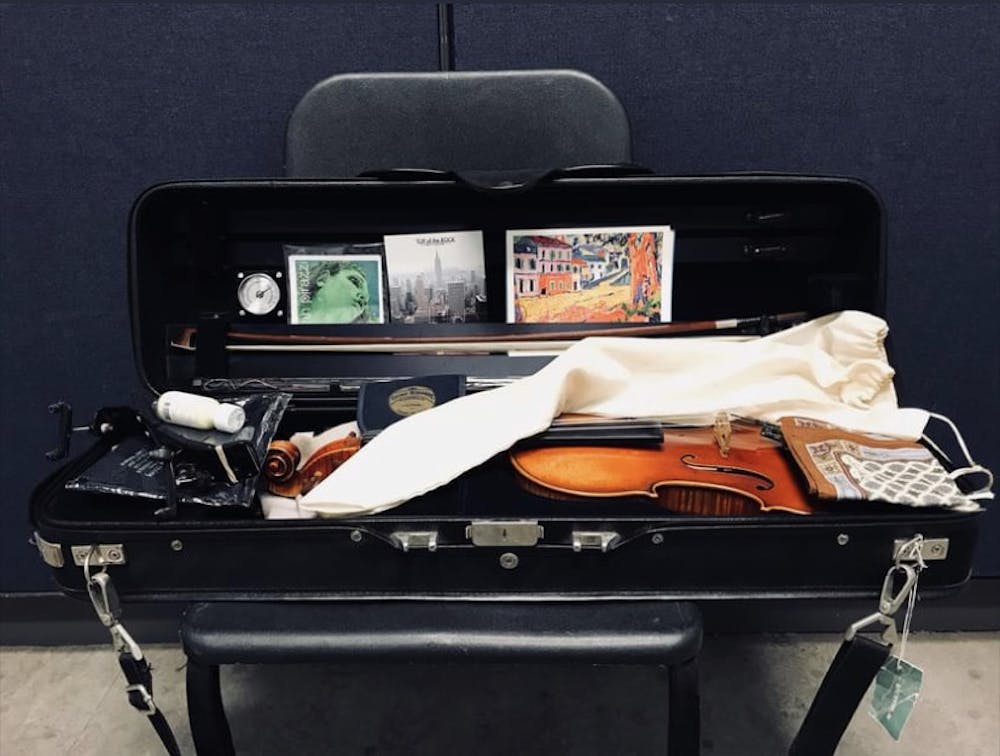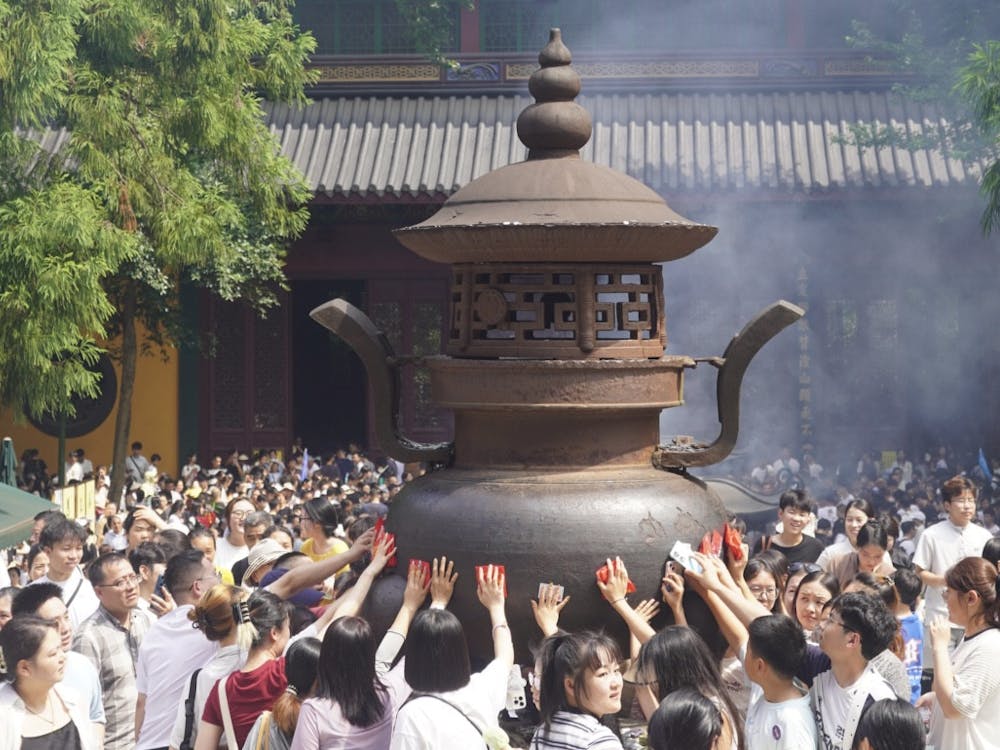
I’ve been playing the violin for as long as I can remember. I first picked it up around the time I was 7 years old, when my parents forced me to take lessons. These lessons continued through middle and high school, and daily practice was a mandate.
Although my musical training was compulsory, playing violin was something I came to love. I fondly remember summer afternoons listening to recordings of Hilary Hahn and Itzhak Perlman playing the Felix Mendelssohn Violin Concerto while I followed along with the score. Some of my favorite memories from high school took place in the orchestra hall, playing Igor Stravinsky’s The Firebird or Gustav Mahler’s Fourth Symphony. There was just something so compelling about working with others to create something beautiful.
After years of renting a violin, my parents finally bought me my own in middle school, and I came to cherish the instrument. I even gave it a name: Emmanuel. Emmanuel has been my companion through many stressful auditions and nerve-wracking performances, but it’s also carried me through countless sublime experiences making music with others. Next to schoolwork, violin was the biggest part of my life before coming into college.
While at Hopkins, though, playing violin began to fall somewhat by the wayside. During freshman year, I had promised myself that I would practice violin at least three times a week at the Mattin Center, but the amount of time I devoted to practicing dwindled as the semesters passed. And although I was involved in performing at local hospitals and nursing homes before the pandemic, it wasn’t something I did every week. When the pandemic started, I hardly ever picked up the instrument.
Recently, I’ve taken strides to practice more regularly. I have been trying to play once or twice a week, just to make sure my strings are taut and that I haven’t completely lost my edge. At the start of each practice session, I dust off Emmanuel with a microfiber cloth and apply rosin to my bow. I tune the pegs and adjust my shoulder rest into a comfortable position. I do a few warm-up exercises with the fingers of my left hand, and when I feel ready, I take a few deep breaths and begin drawing the hairs of my bow across the strings.
My choice of music is usually one of Johann Sebastian Bach’s solo sonatas or partitas. What’s incredible about these pieces is that they are their own self-contained works — they have a tightly unified musical structure and treat the violin as an instrument that can stand on its own without accompaniment. I find these pieces comforting, especially in a time when playing with other musicians is difficult. There’s the “Grave” from the second solo sonata, with its rich chord breaks and brooding melodic lines. There’s the meditative “Allemande” from the second partita and the restless energy of the “Preludio” from the third.
Bach’s solo works contain entire worlds of emotion that are somehow accessible even through such a small instrument like the violin. Playing the sonatas and partitas is thus always a stirring experience. It forces me to channel emotions through the violin, like belting a second voice capable of a range far beyond my own. I’m reminded of a quote by violinist Sarah Chang: “The violin is probably one of the instruments that’s closest to the human voice: You can make the violin sing, it’s portable, you hold it in your hands and against your skin, and it becomes a part of you.”
In a way, playing Bach is also a reflective experience. It opens up a space where I can engage with what I’m feeling and enter into a kind of dialogue between myself and the music. This kind of reflection isn’t always easy, and the technical demands of the music only make it more difficult. Bach has always represented for me a nearly impossible ideal — I know that I will likely never be able to master his complex chord breaks or fully capture the emotional depth of his melodies.
Yet taking the time to pick up the violin and practice Bach for half-hour sessions here and there has proved valuable. It’s helped me recover the kinds of things I felt when I played with other people before the pandemic: the feelings of excitement and trepidation while tackling a difficult passage, the joy of progress, the determination to improve. It’s especially comforting to know that these gifts are accessible even when I’m by myself in the sun room, with only Emmanuel by my side.
Most importantly, it reminded me why I love to play.
Jae Choi is a senior from Carrollton, Texas studying Neuroscience and English. He is an aspiring MD candidate. In his column, he enjoys making sense of extended stays at home during the pandemic and exploring how to find significance in everyday activities.





